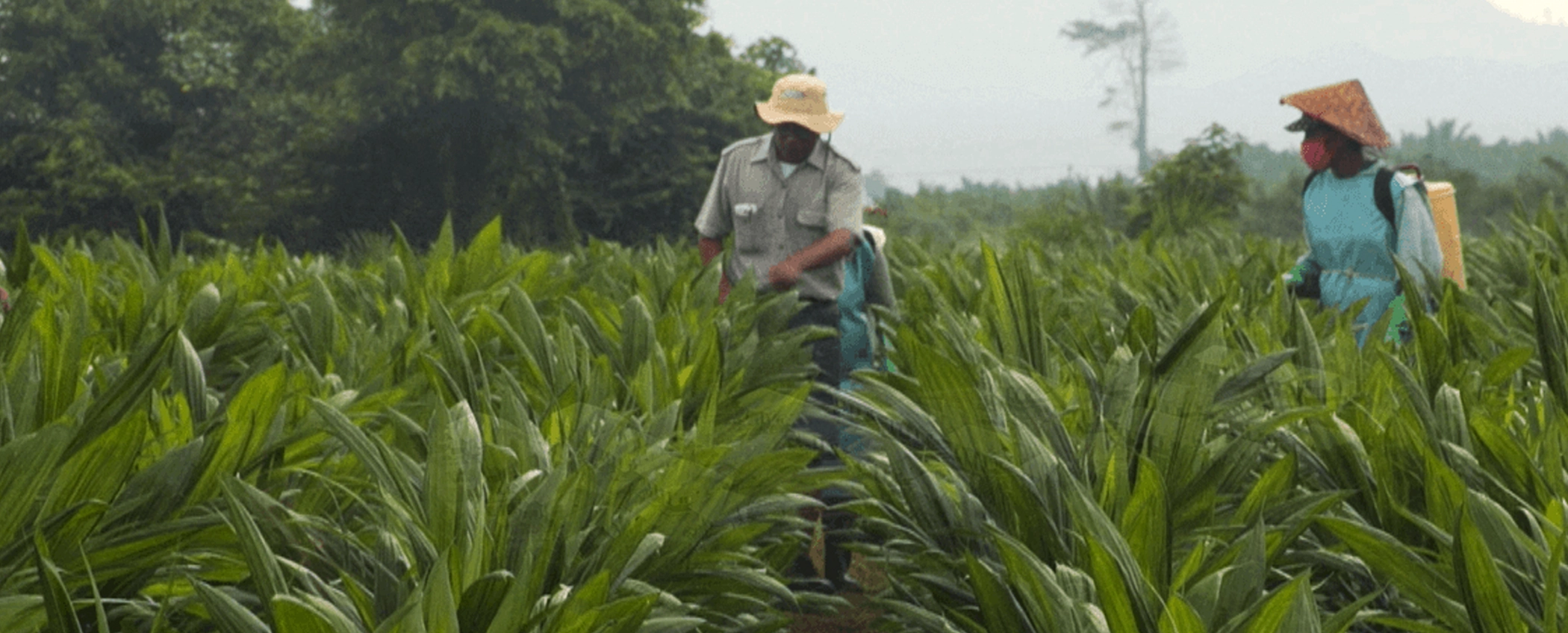Field work

The Group strives for operational excellence across all of its estates. Cultivating oil palm involves a significant amount of labour, and the Group invests in training for all of its staff and workers.
Fertiliser is the single largest cost incurred by the Group other than labour
It is vital the right amount of fertiliser is applied regularly in order to achieve the best yields from the palms. Expert advice is taken each year on the recommended amount of fertiliser and other nutrients that are needed in each field, based on leaf sampling and analysis conducted in laboratories. The application of fertiliser is closely supervised.
Indonesia can experience high levels of rainfall
This is a critical ingredient for palms, but often entails the need to manage high volumes of water. Drains have to be dug and kept clean, and where estates are low-lying, earthworks may be needed to protect the palms and outlets created to divert excess water into water courses. Rain is very beneficial, but flooding can reduce palm productivity.
A certain amount of weeding and pruning is needed on the estates
The palms are pruned so that the growing bunches are supported from beneath but are clearly visible. The cut palm fronds are left in the field to rot, returning organic matter to the soil. Weeds are tolerated to an extent but controlled where necessary, particularly noxious ‘woody’ plants that can inhibit palm growth by competing with the palms for nutrients from the soil and fertiliser applied by us. Harvesters paths are kept clear to facilitate harvesting but also to enable ready access to the field for the workers applying fertiliser or carrying out other tasks.
